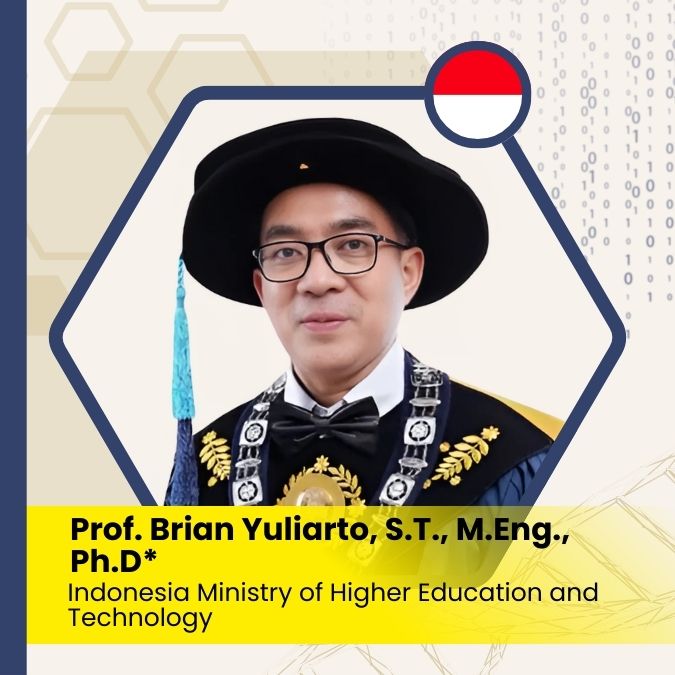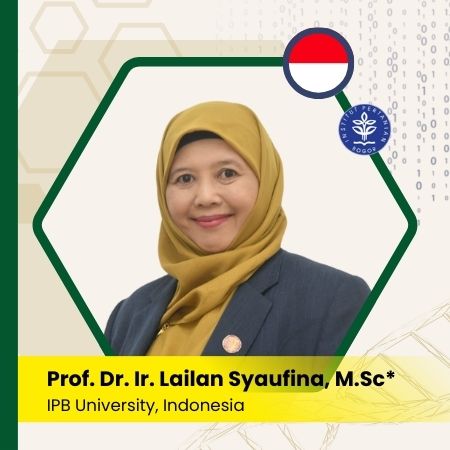IMPORTANT DATES:
• Abstract Submission:
1 March - 31 March 2025 19 April 2025
• Pre-Conference:
15 & 29 April 2025
• Abstract Acceptance Notification:
05 April 2025 22 April 2025
• Registration and Full Payment:
14 March – 08 May 2025
• Media Submission:
14 March – 08 May 2025
• Online Conference:
22 – 23 May 2025
• Post-Conference:
31 May 2025
• Full Paper Submission:
23 May - 07 June 2025
• Scopus Proceeding Submission:
07 July 2025
2024: Innovative Technologies in Bioresource Science and Engineering

"Innovative Technologies in Bioresource Science and Engineering" heralds a paradigm shift in the utilization of biological resources, leveraging cutting-edge technologies to unlock their full potential in sustainable development, environmental stewardship, and human well-being. This subtheme embodies a convergence of disciplines, blending principles from biology, engineering, and materials science to create novel solutions for resource management, value addition, and industrial applications.
At its essence, this subtheme is about harnessing the power of nature's bounty – encompassing plants, microbes, marine organisms, and agricultural by-products – through the lens of innovation and engineering prowess. It encapsulates a diverse array of technologies and methodologies aimed at transforming raw bioresources into high-value products, processes, and materials that benefit society and the environment.
One of the key pillars of this subtheme is bioprocessing, which involves the conversion of biological materials into useful products through biochemical, microbial, or enzymatic means. Innovative bioprocess technologies, such as fermentation, enzymatic conversion, and bioconversion, enable the production of biofuels, biochemicals, biopolymers, and biopharmaceuticals from renewable feedstocks, reducing dependence on fossil fuels and mitigating environmental impact.
Biotechnology plays a central role in unlocking the potential of bioresources, offering tools for genetic engineering, metabolic engineering, and synthetic biology to enhance the productivity, resilience, and value of biological systems. From precision breeding and gene editing to microbial synthesis and metabolic pathway optimization, biotechnological innovations enable the development of crops with improved traits, microorganisms for bioremediation, and enzymes for industrial processes.
Furthermore, this subtheme encompasses advanced materials science approaches to bioresource utilization, including biocomposite materials, biomimetic structures, and bio-inspired design principles. By harnessing the unique properties of biological materials, such as cellulose, chitin, and lignin, engineers and scientists can create sustainable alternatives to conventional materials, reducing reliance on non-renewable resources and minimizing environmental footprint.
In the realm of environmental engineering, innovative technologies in bioresource science are deployed for waste valorization, pollution control, and ecosystem restoration. Bioremediation techniques, biofiltration systems, and phytoremediation approaches leverage the natural abilities of microorganisms, plants, and fungi to detoxify contaminated environments and restore ecological balance.
Moreover, this subtheme explores the intersection of bioresource science with emerging fields such as synthetic biology, nanotechnology, and artificial intelligence, paving the way for unprecedented levels of precision, efficiency, and control in bioengineering applications.
In summary, "Innovative Technologies in Bioresource Science and Engineering" represents a frontier of scientific inquiry and technological innovation, where the rich diversity of biological resources converges with human ingenuity to address pressing global challenges and unlock new opportunities for sustainable development and prosperity.




























